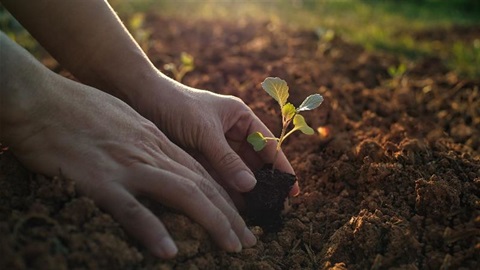Soil Health

Healthy soil is the foundation of a sustainable landscape. It supports microorganisms, helps plants to grow, increases productivity and generally sustains life. You can improve soil health by following these simple steps:
Add compost
Compost is decomposed organic matter. Adding compost to soil increases nutrients, improves soil structure, helps retain soil moisture and boosts plant growth.
Practice crop rotation
Planting crops in different locations each year helps prevent the depletion of nutrients from the soil and interrupts the cycle of pests and diseases.
Include nitrogen-fixing plants
Nitrogen-fixing plants, such as beans and peas, draw nitrogen from the air and fix it into the soil which increases soil fertility and boosts plant growth.
Mulch
Mulch helps to retain soil moisture, encourages microorganisms, helps prevent weed growth and feeds the soil as it decomposes.
Reduce compaction
Soil that is hard and compacted will not allow water to penetrate, prevent air from getting to plant roots and lead to runoff and soil erosion. Reduce compaction by making designated walking paths, keeping heavy machinery to a minimum, rotating stock, building soil structure with compost and encouraging worms (whose burrowing action creates air and drainage holes).
Encourage microorganisms
Microorganisms help to break down organic matter, recycle nutrients and keep plants healthy. Encourage them by adding organic matter to the soil, avoiding chemicals, mulching and adding compost and weed tea.